- Clone
- VI-PL2 (See other available formats)
- Regulatory Status
- RUO
- Other Names
- Integrin β3, gpIIIa
- Isotype
- Mouse IgG1, κ
- Ave. Rating
- Submit a Review
- Product Citations
- 7 publications
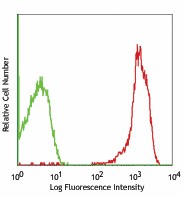
| Cat # | Size | Price | Quantity Check Availability | Save | ||
|---|---|---|---|---|---|---|
| 336402 | 100 µg | 118 CHF | ||||
CD61, also known as integrin β3 and glycoprotein IIIa (gpIIIa), is a 90 kD type I integral transmembrane glycoprotein. It is a member of the integrin family, associating with platelet gpIIb (CD41) to form CD41/CD61 complex and with integrin αV (CD51) to form αV/β3 (CD51/CD61) integrin. CD41/CD61 is expressed on platelets and megakaryocytes, and plays a role in platelet activation and aggregation through interaction with fibrinogen, fibronectin, vWF, and other RGD-containing adhesion molecules. CD51/CD61 is expressed on platelets, osteoclasts, fibroblasts, macrophages, and some tumor cells involved in tumor metastasis, and in adenovirus infection through binding to RGD motif in extracellular matrix proteins.
Product DetailsProduct Details
- Verified Reactivity
- Human, Cynomolgus, Rhesus
- Reported Reactivity
- African Green, Baboon
- Antibody Type
- Monoclonal
- Host Species
- Mouse
- Formulation
- Phosphate-buffered solution, pH 7.2, containing 0.09% sodium azide.
- Preparation
- The antibody was purified by affinity chromatography.
- Concentration
- 0.5 mg/ml
- Storage & Handling
- The antibody solution should be stored undiluted between 2°C and 8°C.
- Application
-
FC - Quality tested
CyTOF®, ICC - Verified
IHC-F, WB - Reported in the literature, not verified in house - Recommended Usage
-
Each lot of this antibody is quality control tested by immunofluorescent staining with flow cytometric analysis. For flow cytometric staining, the suggested use of this reagent is ≤ 0.5 µg per million cells in 100 µl volume. It is recommended that the reagent be titrated for optimal performance for each application.
- Application Notes
-
Additional reported applications (for the relevant formats) include: Western blotting and immunohistochemical staining of frozen tissue sections.
-
Application References
(PubMed link indicates BioLegend citation) -
- Davies J, et al. 1989. J. Cell Biol. 109:1817.
- Roberts M, et al. 2004. Mol. Cell. Biol. 24:1505.
- Ciarlet M, et al. 2002. J. Virol. 76:1109.
- Product Citations
-
- RRID
-
AB_1227584 (BioLegend Cat. No. 336402)
Antigen Details
- Structure
- Type I integral glycoprotein, integrin family, associates with CD41 (gpIIb) forming CD41/CD61 complex or with CD51 (integrin αV) forming CD51/CD61 complex, 90 kD
- Distribution
-
CD41/CD61 complex is expressed on platelets and megakaryocytes; CD51/CD61 complex is expressed on platelets, osteoclasts, fibroblasts, macrophages, and some tumor cells
- Function
- Adhesion, platelet activation and aggregation
- Ligand/Receptor
- Fibronectin, vitronectin, vWF
- Cell Type
- Fibroblasts, Megakaryocytes, Osteoclasts, Platelets
- Biology Area
- Immunology
- Molecular Family
- Adhesion Molecules, CD Molecules
- Antigen References
-
1. Zola H, et al. 2007. Leukocyte and Stromal Cell Molecules: The CD Markers.
- Gene ID
- 3690 View all products for this Gene ID
- UniProt
- View information about CD61 on UniProt.org
Related Pages & Pathways
Pages
Related FAQs
Other Formats
View All CD61 Reagents Request Custom Conjugation| Description | Clone | Applications |
|---|---|---|
| Purified anti-human CD61 | VI-PL2 | FC,CyTOF®,ICC,IHC-F,WB |
| FITC anti-human CD61 | VI-PL2 | FC |
| PE anti-human CD61 | VI-PL2 | FC |
| Alexa Fluor® 647 anti-human CD61 | VI-PL2 | FC,ICC |
| PerCP anti-human CD61 | VI-PL2 | FC |
| APC anti-human CD61 | VI-PL2 | FC |
| Purified anti-human CD61 (Maxpar® Ready) | VI-PL2 | FC,CyTOF® |
| PE/Cyanine7 anti-human CD61 | VI-PL2 | FC |
| PerCP/Cyanine5.5 anti-human CD61 | VI-PL2 | FC |
| APC/Fire™ 750 anti-human CD61 | VI-PL2 | FC |
| Alexa Fluor® 700 anti-human CD61 | VI-PL2 | FC |
| TotalSeq™-A0372 anti-human CD61 | VI-PL2 | PG |
| PE/Dazzle™ 594 anti-human CD61 | VI-PL2 | FC |
| TotalSeq™-C0372 anti-human CD61 | VI-PL2 | PG |
| TotalSeq™-D0372 anti-human CD61 | VI-PL2 | PG |
| FITC anti-human CD61 | VI-PL2 | FC |
| TotalSeq™-B0372 anti-human CD61 | VI-PL2 | PG |
| PE anti-human CD61 | VI-PL2 | FC |
| Brilliant Violet 510™ anti-human CD61 | VI-PL2 | FC |
| Brilliant Violet 650™ anti-human CD61 | VI-PL2 | FC |
| GMP FITC anti-human CD61 | VI-PL2 | FC |
Customers Also Purchased
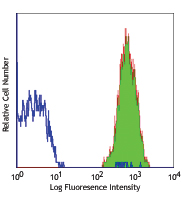
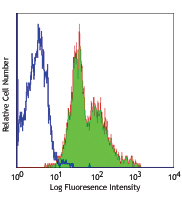
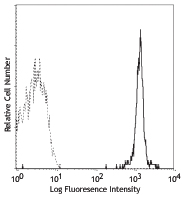
Compare Data Across All Formats
This data display is provided for general comparisons between formats.
Your actual data may vary due to variations in samples, target cells, instruments and their settings, staining conditions, and other factors.
If you need assistance with selecting the best format contact our expert technical support team.
-
Purified anti-human CD61
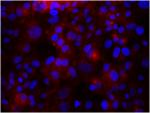
MDA-MB-231 breast cancer cells were stained with anti-CD61 (... 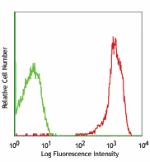
Human peripheral blood platelets stained with purified VI-PL... -
FITC anti-human CD61
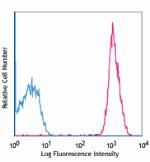
Human peripheral blood platelets stained with VI-PL2 FITC -
PE anti-human CD61
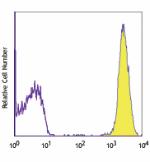
Human peripheral blood platelets stained with VI-PL2 PE -
Alexa Fluor® 647 anti-human CD61
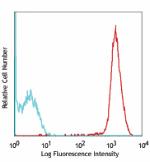
Human peripheral blood platelets stained with VI-PL2 Alexa F... 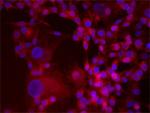
MDA-MB435 breast cancer cell line was stained with 20 µg/mL ... -
PerCP anti-human CD61
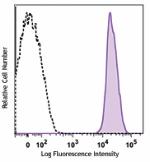
Human peripheral blood platelets were stained with CD61 (clo... -
APC anti-human CD61
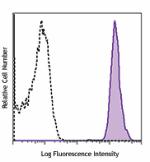
Human peripheral blood platelets were stained with CD61 (clo... -
Purified anti-human CD61 (Maxpar® Ready)
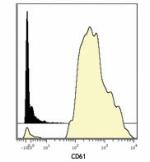
Human PBMCs stained with 150Nd-anti-CD61 (VI-PL2). B lymphoc... -
PE/Cyanine7 anti-human CD61
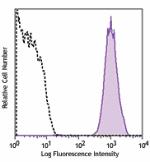
Human peripheral blood platelets were stained with CD61 (clo... -
PerCP/Cyanine5.5 anti-human CD61
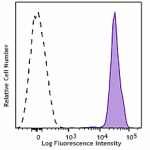
Human peripheral blood platelets were stained with CD61 (clo... -
APC/Fire™ 750 anti-human CD61
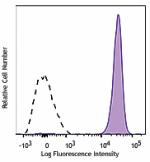
Human peripheral blood platelets were stained with CD61 (clo... -
Alexa Fluor® 700 anti-human CD61
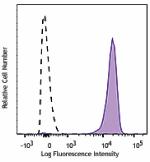
Human peripheral blood platelets were stained with CD61 (clo... -
TotalSeq™-A0372 anti-human CD61
-
PE/Dazzle™ 594 anti-human CD61
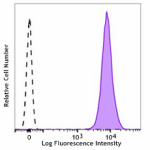
Human peripheral blood platelets were stained with CD61 (clo... -
TotalSeq™-C0372 anti-human CD61
-
TotalSeq™-D0372 anti-human CD61
-
FITC anti-human CD61
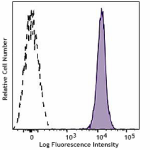
Typical results from human peripheral blood platelets staine... -
TotalSeq™-B0372 anti-human CD61
-
PE anti-human CD61

Typical results from human peripheral blood platelets staine... -
Brilliant Violet 510™ anti-human CD61

Human peripheral blood platelets were stained with anti-hum... -
Brilliant Violet 650™ anti-human CD61

Human peripheral blood platelets were stained with anti-huma... -
GMP FITC anti-human CD61

Typical results from human peripheral blood platelets staine...

 Login / Register
Login / Register 








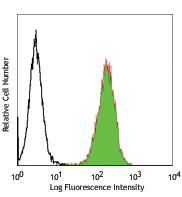







Follow Us